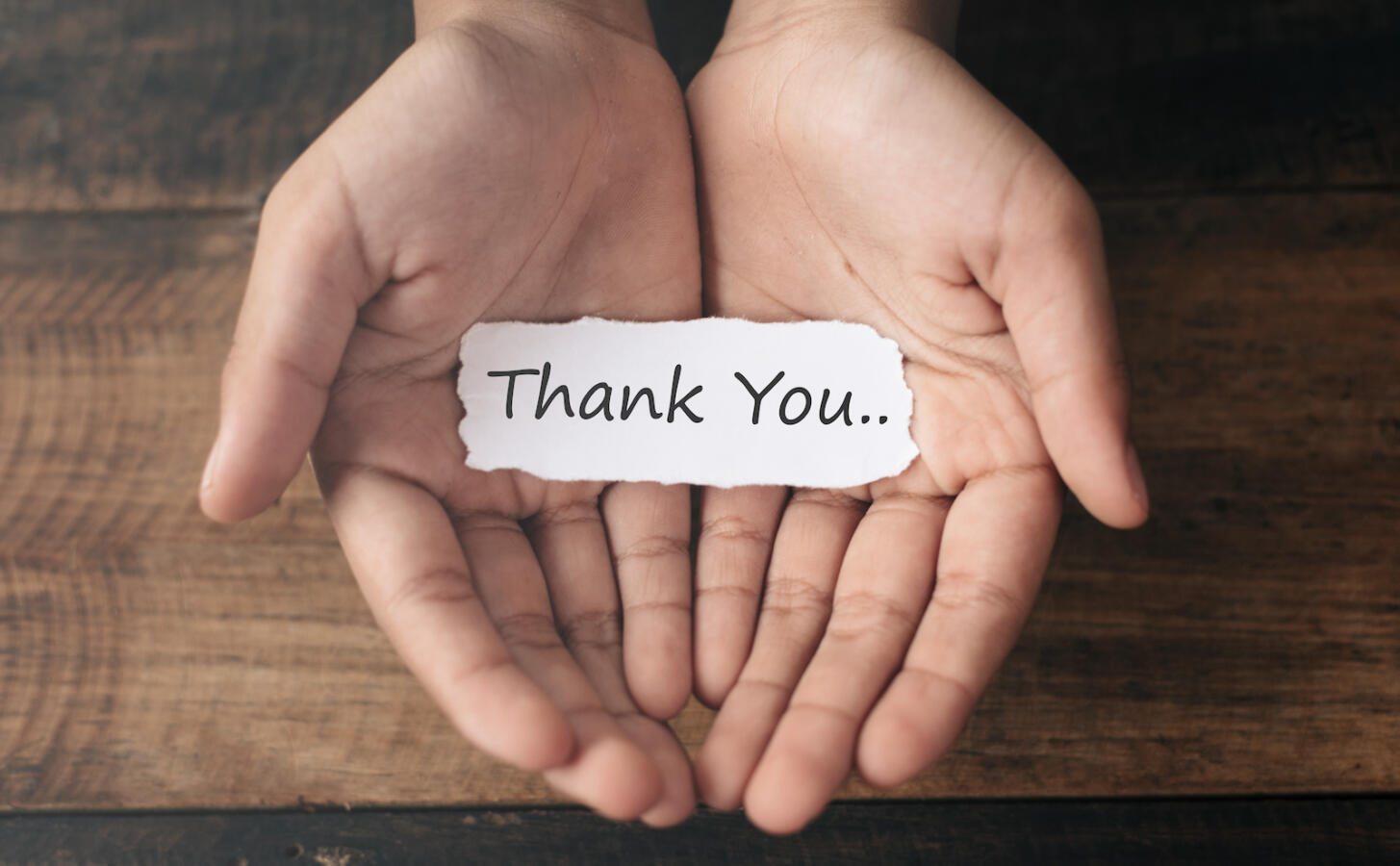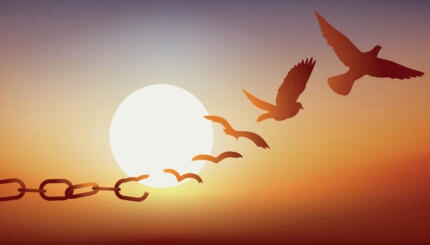There’s a venerable Jewish joke that goes like this:
On a hot summer day in the old country, a decrepit train was slowly making its way across the Pale of Settlement. It was hot, dusty, and miserable. But what made things even worse was an old man in the back moaning. “Oy, I’m so thirsty, I’m so thirsty,” he repeated over and over. Finally, another passenger, sick of all the kvetching, said: “Here, have some of my water. Only please stop moaning!”
The old man took a drink, and sure enough, for a few minutes he was quiet. But then he moaned again, “Oy, I was so thirsty!”
I’ve told this joke in sermons, on meditation retreats, even at a bar mitzvah, and it always gets a laugh. We Jews love to kvetch after all, and if we can’t kvetch about something anymore, we can at least remember when we were kvetching in the past.
If you stop and think about it, many of our holidays are like this. On Passover, we remember how we kvetched in Egypt. On Tisha B’Av, we read the Book of Kvetches — actually Lamentations, but close enough. Even Hanukkah, initially a celebration of an unlikely military victory, became filled with stories of woe, like the tale of Hannah and her children, which made me cry in Hebrew school.
Yet there is something powerful about this remembered kvetching, and ironically, it has something to do with gratitude — or as the upcoming American holiday invites, giving thanks.
On the most straightforward level, remembering how we’ve suffered in the past helps us cultivate gratitude for the blessings we have right now. One of the lines repeated at the Passover Seder is, “Once we were slaves, and now we are free.” Normally, most of us take for granted the freedoms we enjoy every day. I certainly do. The injunction to remember and even imaginatively re-experience this past servitude helps undo the natural human inclination to take what is given for granted.
In this way, gratitude acts as a counterweight to the built-in negativity bias that all human beings possess. We are evolutionarily wired to kvetch, to notice that which is wrong more than that which is right. That propensity served us well in primeval times: The homo sapiens who didn’t get annoyed by the bustle in the hedgerow got eaten.
But nowadays, negativity bias makes us miserable. The Buddhist teacher Thich Nhat Hanh once said that when you get over a toothache, you might experience relief for a day or two. But how many of us woke up today grateful for not having a toothache? The intentional cultivation of gratitude — which includes, in traditional Judaism, daily blessings of thanksgiving for health — is thus an essential practice of happiness.
Most importantly, this remembrance of kvetches past can, and ought to, inspire empathy and solidarity. By remembering what it is like to be enslaved, I recommit myself to ending oppression everywhere. By recognizing my privilege and good fortune, I commit myself to lessening the suffering of others. “Do not mistreat or oppress a stranger, for you were strangers in the land of Egypt,” admonishes Exodus 22:21 — a lesson many still resist today.
That ethical imperative even applies to remembrance rituals themselves. For example, the Thanksgiving myth is largely fictional, but it is still rooted in European colonialism and the genocide of Native Americans. So even as Thanksgiving invites gratitude, that gratitude, in turn, invites a reckoning with the founding injustices of the American experience.
In this way, the cultivation of gratitude expands beyond selfish appreciation toward ethical responsibility. The remembrance of kvetching is the beginning of morality.
All of this is especially true this year, when many of us are gathering with family and friends in ways we didn’t last Thanksgiving. There is so much to be thankful for, as we (maybe) emerge from the worst of the pandemic: the astonishing advances of science, the shared sacrifices we made to protect one another, the heroism of healthcare and other essential workers, and so much more.
These, too, are not to be taken for granted, as the very foundations of Western civilization — reason, science, critical thinking, the social contract — are being attacked by forces of selfishness, ignorance, and conspiracy-mongering. Now more than ever there is an ethical imperative to reflect, in the words of the Shehechiyanu blessing, on what really brought us to this moment, what sustained us and enabled us to reach this day.
All of us, regardless of our religious or political affiliations, are walking around traumatized by the past eighteen months. Whatever our beliefs, we all have experienced grief, rage, and fear that is often too painful to touch. Our vulnerability, our shared human kvetch, can bring us together.
This Thanksgiving can be a time for that shared reflection. Most of us made it, though many of us did not. We were slaves, and now we are free. We were so thirsty, and now we can take a drink. Now is a time to give thanks, to grieve, and to recommit to the truths that sustain us.
This article initially appeared in My Jewish Learning’s Shabbat newsletter Recharge on Nov. 20, 2021. To sign up to receive Recharge each week in your inbox, click here.



